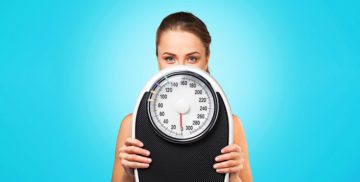Dieting is never off-topic and there always seems to be a new diet trend, especially ones backed by celebrities. But over time some diets have been given the seal of approval by nutritionists and medical professionals. They have a good success rate and, more importantly, are sustainable. It’s time to check out the top 5 diets that actually work.
We’ve chosen five diets that are popular and fairly well known. Importantly, these are not fad diets (although they all have their opponents). Fad diets are eating regimes that are ridiculously popular for a short time. They often involve unhealthy restrictive eating or feature unusual or unappealing foods. Can you cast your mind back to the cabbage soup diet, the grapefruit diet, the lemon water/maple syrup/cayenne pepper diet? Beyonce, you may be a goddess, but that last one is mainly your fault.
What makes a good diet?
A good diet is a sensible diet that provides a wide range of nutritious food and is sustainable. By that we mean it promotes health and steady weight loss. You might still want a ‘cheat’ treat but you shouldn’t be running to the chippy in tears on day two. So here are the top 5 diets that actually work, most of which might be familiar.
5:2 Intermittent Fasting
Intermittent fasting is the act of eating to a time schedule. The 5:2 stipulates eating normally for five days each week and consuming around 600 calories on the other two non-concurrent days. Intermittent fasting is believed to improve cholesterol and blood sugar levels, reduce the risk of stroke, heart disease and cancer, and improve brain function.
Pros: Allows regular healthy eating; no special foods; limited calorie counting; overall weekly calorie reduction leads to steady weight loss and fat loss.
Cons: Calorie restriction is seen by some as a fad diet; fasting days can result in a lack of energy and concentration, headaches and lightheadedness.
Ketogenic Diet
The ketogenic, or keto, diet works by restricting carbohydrates to bring on a state of ketosis. The body gets energy by taking glucose from carbs. In the absence of glucose, the body turns to fats, using these at its fuel source. The diet was developed by doctors to curb seizures in childhood epilepsy. It’s also thought to be beneficial for diabetics controlling their insulin levels.
Pros: steady weight and fat loss when the diet is followed; keto is a lifestyle commitment rather than a short term fix; can help regulate insulin levels.
Cons: high levels of saturated fat may be problematic; high protein levels can be an issue for anyone with kidney problems; many nutrient-rich vegetables are prohibited.
Vegan Diet
Almost the opposite of the keto diet, a vegan diet eliminates all meat, eggs and dairy products. Committed vegans also avoid food and clothing of animal origin, like honey, leather and wool. The diet consists of mainly fruit and vegetables, plus beans and seeds for protein. The lack of fat and processed sugar combined with high fibre supports weight loss. Vegans who pay attention to nutrition can sustain the diet indefinitely and it becomes a lifestyle rather than a weight-loss method.
Pros: impressive weight loss compared to other diets; usually involves healthy food intake; may reduce risk of heart disease; ethical eating plan.
Cons: lack of vitamin B from the diet can cause health problems; possible iron and protein deficiency; processed vegan replacements can be unhealthy; restrictive.
Calorie Controlled Diet
The concept of counting calories for weight loss is a simple one. When you consume fewer calories than you burn in energy, you lose weight. The NHS recommends a daily intake of 2000 calories for adult women and 2500 for men. Therefore, a daily calorie reduction over time (combined with regular exercise) should lead to weight loss. It makes sense. The NHS weight loss plan is based on 1900 calories for men and 1400 for women.
Pros: simple and sensible; promotes safe, steady weight loss of 1-2 pounds per week; beneficial for long term health.
Cons: counting calories can be tiresome; can be viewed as restrictive eating; knowledge of nutrition helpful to avoid high caloric intake of ‘wrong’ foods.
Mediterranean Diet
This is the diet health experts refer to as the ‘ideal’ eating plan. It’s not a diet as such, more a lifestyle based on the local and seasonal foods available to people in the Mediterranean. It’s rich in seafood, healthy fats, fruit, vegetables, nuts, legumes and olive oil. It is known for reducing the risk of heart disease and may support weight loss similar to that of a low carb diet.
Pros: allows all food groups; full of flavour and variety; may prevent strokes; may improve cholesterol, brain function and arthritis; food combination prevents hunger; red wine allowed.
Cons: Erm, nope. It may not suit everyone, but the Mediterranean diet is one to enjoy rather than endure.
Summary
If you want to lose weight in a steady, sensible way, choose a diet that works for you. It should be one you enjoy, can stick to, and won’t lead to hunger and frustration. There’s plenty of support out there too, from organised slimming groups, Couch to 5K programmes, healthy eating apps and the NHS. There’s a healthy eating plan to suit you. And regardless of what your fave celebrity is doing, avoid the fad diets.




